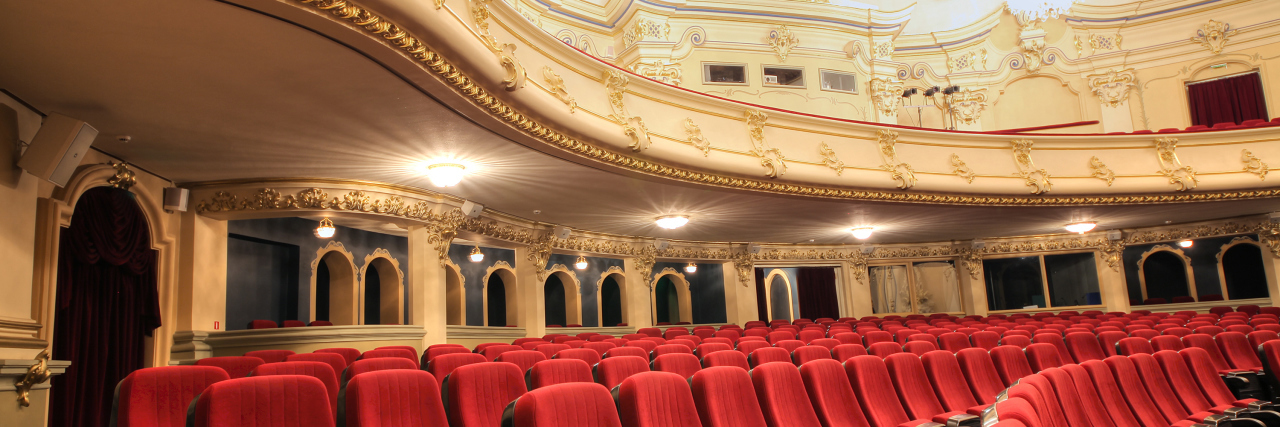For 18 years I thought something was wrong with me. Try as I might, I couldn’t understand people. It seemed as if everyone read a life rule book, or spoke a language I never learned. Now at age 21, I know nothing is “wrong” with me. I also know why I felt that way. There are unspoken social rules you’re expected you to “just know.” My senior year of high school I learned I was on the autism spectrum / diagnosed with Asperger’s. My diagnosis clarified some reasons why social situations and nonverbal communication were inherently challenging. Learning that I have a disability brought new challenges to wrestle with on top of my already complex identity: Chinese adoptee with a white single Jewish mother.
I first noticed I was “different” in fifth grade. Social rules became more abstract, and kids began forming tight groups. A major change in fifth grade was that we were allowed to sit anywhere during lunch. Before, students sat with their homerooms. While my peers were ecstatic to have this new freedom, I was petrified. The structure I loved was gone. The school cafeteria turned from a simple place for eating into anything but simple.
I quickly learned that people didn’t necessarily want to sit with me. I didn’t know who to sit with, and it was so hard to know who to ask. I wondered how all the other kids just seemed to know who to sit with, and who were their friends. It was as if people could read each other’s minds. I naively hoped things would change in “grown-up” middle school. I quickly learned nobody is “grown-up” in middle school.
Middle school is its own special circle of Hell. I was perpetually an outcast. It was in these grades where I began thinking something was truly “wrong” with me. Throughout both middle and high school, I was bullied. Now, if you’re thinking of the bully on the playground or even Mean Girls-esque bullying, you would be wrong. In fact, at times I didn’t know my classmates’ behavior was a subtle form of bullying. For example, I would say things not related to the conversation. Then, my peers would look at each other as if to say, “why did she say that?” Or I wouldn’t understand jokes or innuendos, and the people around me would snicker quietly. Like a strange alien no one knew how to handle, my classmates gradually stopped socializing with me. I felt frustrated and hopeless. I couldn’t understand why I couldn’t understand what I thought I should understand!
Eventually I found a temporary safe haven through high school theatre. In theatre you could make a choice onstage with someone and then just be like, “let’s do that reaction over, that was awkward!” Theatre is where I practice the important nonverbal aspects of conversation that nobody explicitly teaches, such as reading body language and taking another’s point of view. This is often challenging to people on the spectrum. I believe theatre taught me how to interact with people.
This year, I took a big leap of faith and broke tradition – as an Aspie this scared me to death! Instead of returning for my junior year, I decided to take a gap year. Trinity Repertory Company in Rhode Island offered me a year long internship to consult with them for their sensory friendly season, and continue working with Spectrum Theatre Ensemble of Providence (STE). STE was created by Trinity’s Diversity and Inclusion Fellow, Clay B. Martin. It is one of the first theatre companies comprised of neurotypical and neurodiverse actors.
Sensory friendly shows are productions made accessible to neurodiverse theater patrons, including those on the autism spectrum. Before the production, patrons are sent a brief plot synopsis and a list of possible sensory triggers. This year, Trinity is using a warning lantern during the production to let audience members prepare themselves for any sudden sound cues, lighting cues, or intense action onstage.
During the summer, I worked with Clay on STE’s first theatre production. Being part of STE was the first time I felt comfortable showing all sides of my personality. I met people who really understood how hard it can be having autism. Instead of seeing members for what they cannot do, the company focuses on what someone can do. In fact, our first production combated stereotypes related to autism, and openly discussed the hardships of being on the spectrum in a world not so kind to neurodiverse citizens.
I want to change the image that comes to people’s minds when I say, “I have autism.” There isn’t one gender, race, social class – you name it – to people on the spectrum, just like there’s no specific “look” to a human being. Through theatre, I am working towards this. I’m so glad I found Clay and Spectrum Theatre Ensemble. I feel like I have found a new family and a place where my strengths are celebrated. If I could go back and show middle school Ava what she’ll accomplish in the future, I would. She’d see that she will be able to make friends, have mentors, and have a supportive atmosphere to collaborate and create art.
Autism doesn’t have to be a speed bump in life. I’m slowly learning how to turn autism – which I at first perceived as a negative and a weakness – into something positive. Who knows, maybe autism, theatre, and sensory friendly initiatives will turn into a career.
This article originally appeared on Cultures of Dignity.
We want to hear your story. Become a Mighty contributor here.
Thinkstock photo by Pumpizold A.

